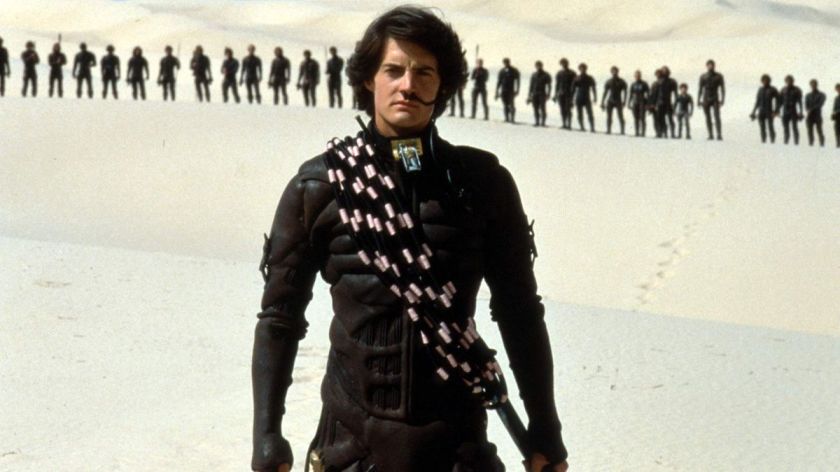Deliver Us (Libera Nos) (2016)
The Italian documentary Deliver Us (Libera Nos) opens on a peaceful, if slightly sinister image: an Sicilian priest quietly prays with a woman sitting in a chair, her back to the camera. As the priest presses his stole to the woman’s head, a terrifying change comes over her: she begins shrieking, jerking, swearing at the priest as though he’s hurting her. But the priest continues to pray, apparently oblivious to the woman’s increasingly violent and erratic behavior.
The scene plunges us directly into the subject of Deliver Us: modern-day exorcisms and the priests who perform them. The focus is primarily on Father Cataldo, a Franciscan priest in Palermo who regularly performs exorcisms on a dedicated following who come from all over Sicily. While there are other priests featured in the documentary, Cataldo is the film’s primary protagonist – and some would say antagonist – as he attempts to bring relief, and faith, to a multitude of people convinced they are possessed by demons.
Deliver Us is presented in a very spare style, refuting any desire to explain itself. There are no talking heads, no explanations of rites or theology, no direct interviews with the priests or the parishioners involved. There are no psychiatrists explaining mental disorders, no elucidations dogma, no naysayers, and no one to give credence – positive or negative – to the rites being performed. There is only what we see on the screen, the horror, the pathos, and the faith of a small group of people who believe, passionately, that their problems, mental, emotional, and physical, are caused by demonic possession.
As the film proceeds, a fascinating picture develops, of a culture and a community from which many (though by no means all) of us probably consider ourselves removed. While we might delight at Max von Sydow doing battle with the devil for Linda Blair’s soul, it is a far different story when faced with real people who believe themselves possessed by the occult. On the one hand, Father Cataldo’s practices have the potential to endanger the people he purports to help – though the film shows at least one sequence where he carefully questions potentially possessed people about their problems, asking them if they’ve seen doctors and therapists, and at one point even turns a woman away, telling her that she’s very probably depressed and needs medical attention. It is this element that begins to move the film away from the impression that it’s simply a debunking and towards an interest in the cultural and traditional development of faith, and the reality of it for those who live within it.
The scenes of exorcism are harrowing, not least because they appear to almost come out of The Exorcist. Swearing, crawling on the ground, smashing furniture, speaking in tongues, growling, and spitting, the people being exorcised are obviously affected by the rites of exorcism, their individual “demons” manifesting themselves almost on cue. These people, like their priests, are not performing possession – whatever their problems and potential illnesses, they are deeply engaged in the efficacy of the exorcism rite. They believe in it, and the film asks us to understand their belief without attempting to judge it.
The people exorcised are far from uniform. Women and men, young children and teenagers, professed “non-believers” and the deeply faithful, all eventually come to Father Cataldo. They are drawn from different classes and backgrounds, and their faith in the priest’s ability to help them is absolute. This is both unnerving and a little sad, but the film takes no steps to mock those who believe, or to force the audience into a position of superiority over these people. Many of them, in fact, purport to be cured, or at least helped, by being exorcised, finding strength to fight the “demons” that possess them in the words of the priest and the dedication to their faith.
Cataldo himself is far from a reassuring presence-there’s something perfunctory about him, especially in the opening sequences, as though he’s operating an exorcism factory rather than a Catholic service-but as the film proceeds, it becomes clear that he doesn’t have some deep-seated desire for great power over others. This is no charlatan, whatever one may think of exorcism. This is a priest who believes, very deeply, in his ability to help people, to fight (and win) the battle against Satan.
Deliver Us is ultimately a slice of life, providing no real answers to the multitudinous questions at the back of its images. But it is an affecting documentary, a window into a fringe element of faith that has often possessed horror film lovers, but holds within it a deep-seated system of beliefs and rituals that are still part of the world today. It is sad, it is frightening, and it holds no answers. It must be taken on faith alone, and that is both its strength, and its weakness.
Deliver Us is now showing at Fantasia 2017.






